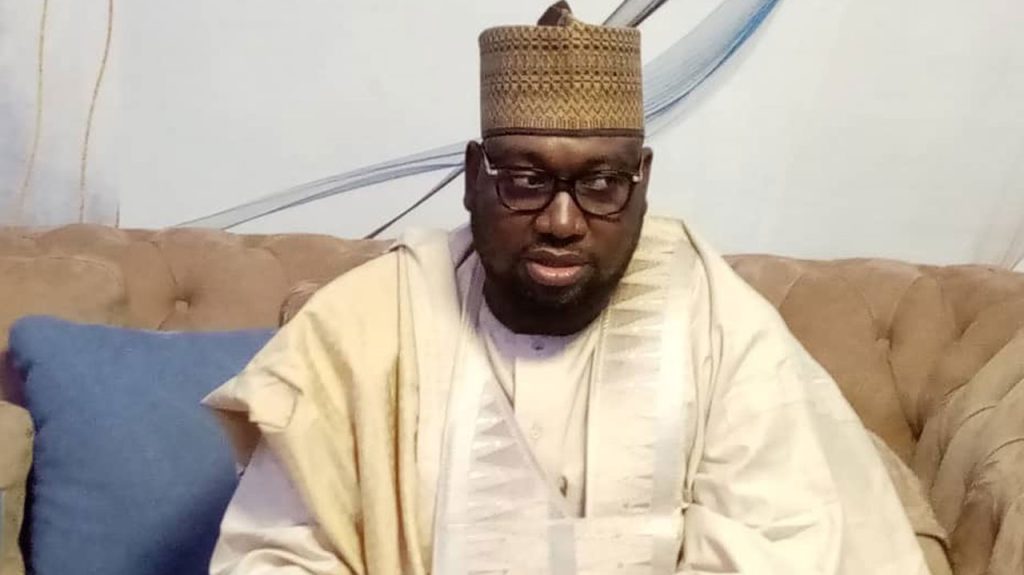The Nigerian political landscape is already buzzing with discussions about the 2027 presidential election, a development that has drawn concern from some quarters. Aminu Jaji, a member of the House of Representatives, has cautioned against premature politicking, urging key figures like former Kaduna State Governor Nasir El-Rufai and the All Progressives Congress (APC) National Chairman Abdullahi Ganduje to refrain from engaging in divisive rhetoric. Jaji’s appeal comes amid escalating tensions between political actors, fueled by speculation and maneuvering surrounding the 2027 election. He emphasizes the need to prioritize national interest over individual ambitions, particularly at a time when the current administration, led by President Bola Tinubu, is still in its nascent stages.
The controversy surrounding the 2027 election was ignited by opposition figures, including Bauchi State Governor Bala Mohammed, former Secretary to the Government of the Federation Babachir Lawal, the Arewa Consultative Forum, and other northern leaders, who have expressed concerns about Tinubu’s potential re-election bid. Their anxieties were further amplified by Ganduje’s assertion that northern politicians should abandon any presidential ambitions for 2027, arguing that it would be unfair to deny Tinubu a second term after a fellow northerner completed eight years in office. This ignited a counter-argument from El-Rufai, who claimed a deteriorating relationship between the President and the north, warning of a potential repeat of the Goodluck Jonathan scenario where incumbency was challenged.
Jaji expressed his disappointment at the premature nature of the 2027 election debate, stressing that the focus should be on supporting the current administration’s efforts to address the nation’s challenges. He criticized the tendency of Nigerian politics to prioritize individual ambitions and regional sentiments over national unity and stability. Jaji argued that the constant focus on “unity elections” rather than “policy elections,” as seen in countries like the United States, undermines national cohesion and progress. He urged all stakeholders to prioritize the nation’s well-being and allow the current administration ample time to implement its agenda before engaging in divisive political maneuvering.
The underlying tension reflects the complex interplay of regional, ethnic, and political factors that shape Nigerian politics. The north’s political influence, the delicate balance of power between different regions, and the historical precedent of power rotation all contribute to the heightened sensitivity surrounding the 2027 election. The emergence of opposing voices within the ruling APC itself underscores the internal divisions and competing interests that could further complicate the political landscape in the coming years.
While the 2027 election is still years away, the early jostling for position highlights the perpetual nature of political maneuvering in Nigeria. The concerns raised by Jaji and others underscore the need for responsible political engagement that prioritizes national interests over personal ambitions. The premature focus on the next election cycle risks distracting from the crucial task of addressing the pressing challenges facing the nation, including insecurity, economic instability, and the need for national unity.
The “One Nigeria” project, unveiled by the National Association of Former Local Government Council Chairmen in Nigeria (NALGON), serves as a timely reminder of the importance of national unity and cohesion. NALGON National Chairman Shaba Ibrahim commended President Tinubu’s efforts to address critical issues like insecurity and economic instability. He expressed confidence in the administration’s ability to steer the nation towards prosperity and praised its commitment to local government autonomy. Ibrahim also acknowledged the support of the Board of Trustees, led by Secretary to the Government of the Federation George Akume, and the efforts of National Security Advisor Nuhu Ribadu and security agencies in maintaining peace and security. This focus on collaborative governance and national unity stands in stark contrast to the divisive rhetoric surrounding the 2027 election debate.


